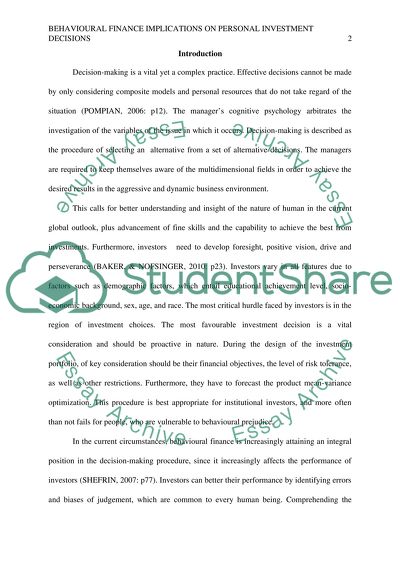Cite this document
(“Behavioural Finance Implications on Personal Investment Decisions Essay”, n.d.)
Behavioural Finance Implications on Personal Investment Decisions Essay. Retrieved from https://studentshare.org/finance-accounting/1444977-financial-services
Behavioural Finance Implications on Personal Investment Decisions Essay. Retrieved from https://studentshare.org/finance-accounting/1444977-financial-services
(Behavioural Finance Implications on Personal Investment Decisions Essay)
Behavioural Finance Implications on Personal Investment Decisions Essay. https://studentshare.org/finance-accounting/1444977-financial-services.
Behavioural Finance Implications on Personal Investment Decisions Essay. https://studentshare.org/finance-accounting/1444977-financial-services.
“Behavioural Finance Implications on Personal Investment Decisions Essay”, n.d. https://studentshare.org/finance-accounting/1444977-financial-services.


